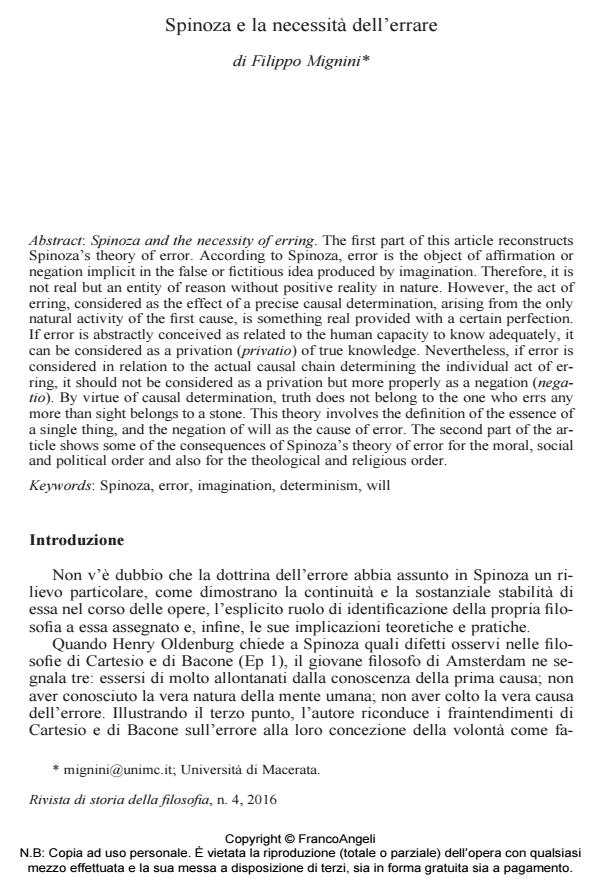Spinoza and the necessity of erring
Journal title RIVISTA DI STORIA DELLA FILOSOFIA
Author/s Filippo Mignini
Publishing Year 2016 Issue 2016/4
Language Italian Pages 19 P. 693-711 File size 61 KB
DOI 10.3280/SF2016-004009
DOI is like a bar code for intellectual property: to have more infomation
click here
Below, you can see the article first page
If you want to buy this article in PDF format, you can do it, following the instructions to buy download credits

FrancoAngeli is member of Publishers International Linking Association, Inc (PILA), a not-for-profit association which run the CrossRef service enabling links to and from online scholarly content.
The first part of this article reconstructs Spinoza’s theory of error. According to Spinoza, error is the object of affirmation or negation implicit in the false or fictitious idea produced by imagination. Therefore, it is not real but an entity of reason without positive reality in nature. However, the act of erring, considered as the effect of a precise causal determination, arising from the only natural activity of the first cause, is something real provided with a certain perfection. If error is abstractly conceived as related to the human capacity to know adequately, it can be considered as a privation (privatio) of true knowledge. Nevertheless, if error is considered in relation to the actual causal chain determining the individual act of erring, it should not be considered as a privation but more properly as a negation (negatio). By virtue of causal determination, truth does not belong to the one who errs any more than sight belongs to a stone. This theory involves the definition of the essence of a single thing, and the negation of will as the cause of error. The second part of the article shows some of the consequences of Spinoza’s theory of error for the moral, social and political order and also for the theological and religious order.
Keywords: Spinoza, error, imagination, determinism, will
- Spinoza e le sei storie di Adamo: teoria della narrazione e polisemia dei testi Marta Libertà De Bastiani, in RIVISTA DI STORIA DELLA FILOSOFIA 4/2023 pp.684
DOI: 10.3280/SF2022-004004
Filippo Mignini, Spinoza e la necessità dell’errare in "RIVISTA DI STORIA DELLA FILOSOFIA" 4/2016, pp 693-711, DOI: 10.3280/SF2016-004009